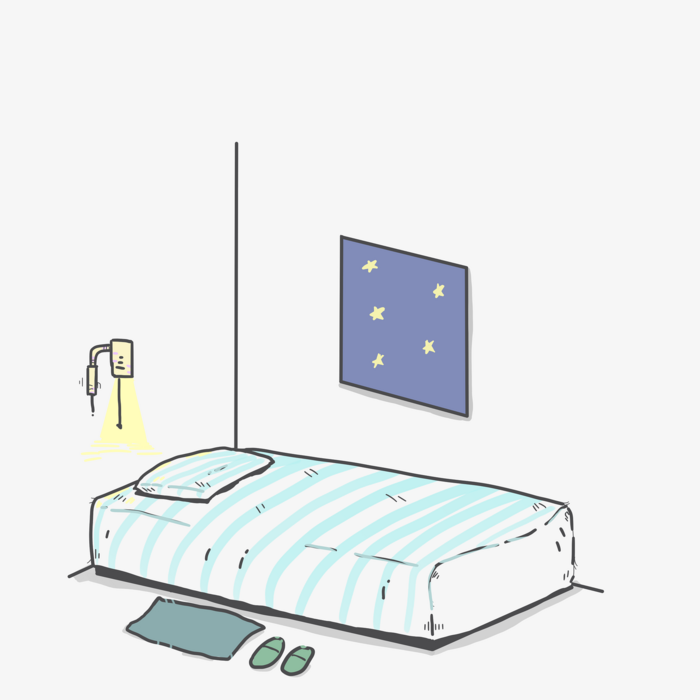Sleep quality is much more significantly linked to quality of life over time than sleep duration or “social jetlag,” according to a study published March 15, 2023 in the open-access journal PLOS ONE by Michaela Kudrnáčová from Faculty of Social Sciences, Charles University, and Aleš Kudrnáč from the Institute of Sociology, Czech Academy of Sciences.

Credit: wixin_56k, Pixabay, CC0 (https://creativecommons.org/publicdomain/zero/1.0/)
Sleep quality is much more significantly linked to quality of life over time than sleep duration or “social jetlag,” according to a study published March 15, 2023 in the open-access journal PLOS ONE by Michaela Kudrnáčová from Faculty of Social Sciences, Charles University, and Aleš Kudrnáč from the Institute of Sociology, Czech Academy of Sciences.
Though many studies link sleep quality to one’s overall quality of life, there’s little research on the relative impact of changes in sleep duration, quality, and timing on an individual’s quality of life over the long term.
To investigate this further, the authors used data from the annual Czech Household Panel Survey 2018-2020. Different adults in the same household each completed the survey, and later iterations of the survey approached the same individuals to participate again: 5,132 Czech adults responded to the survey in 2018, 2,046 in 2019, and 2,161 in 2020. The authors analyzed responses to questions covering life satisfaction, wellbeing, happiness, subjective health, and work stress alongside responses on self-reported sleep duration, sleep quality, and sleep timing or “social jetlag” (when someone’s socially directed sleep rhythms and innate biological sleep rhythms are mismatched). Their model analyzed results within the same person’s responses across the years of the survey, and also compared results between respondents. This is also the first study which has tested the longitudinal effect of social jetlag on quality of life.
At the individual level, reported sleep quality was significantly correlated with all five quality of life measures except work stress. Sleep quality was also significantly positively correlated with all quality of life measures when comparing between people. Comparing between respondents, sleep duration was significantly correlated with subjective health and happiness, and social jetlag was significantly correlated with life satisfaction and work stress. However, neither sleep duration nor social jetlag showed any significant correlations over time at the individual level.
The authors note that causes of social jetlag (e.g., a new job with different hours) change infrequently, and the current study’s three-year time period studied may not have been long enough to capture any potential effect. Furthermore, the final wave of data captured the experience of the pandemic in the spring of 2020, albeit during periods of eased restrictions. This study, therefore, might not be representative of the behavior under normal circumstances. However, these results suggest that sleep duration or timing may not be as important to quality of life as high-quality sleep.
The authors add: “Better sleep means a better quality of life. While when we sleep and how long we sleep is important, individuals who have better quality sleep also have a better quality of life, regardless of the time and length of sleep. In addition, by following 4,253 people for three years, we found that those whose sleep improved also had an improved quality of life.”
#####
In your coverage please use this URL to provide access to the freely available article in PLOS ONE: https://journals.plos.org/plosone/article?id=10.1371/journal.pone.0282085
Citation: Kudrnáčová M, Kudrnáč A (2023) Better sleep, better life? testing the role of sleep on quality of life. PLoS ONE 18(3): e0282085. https://doi.org/10.1371/journal.pone.0282085
Author Countries: Czechia
Funding: The work was supported by the grant SVV at the Institute of Sociological Studies, Faculty of Social Sciences, Charles University and by the Czech Science Foundation (project 22-09220S). The funders had no role in study design, data collection and analysis, decision to publish, or preparation of the manuscript.
Journal
PLoS ONE
DOI
10.1371/journal.pone.0282085
Method of Research
Survey
Subject of Research
Not applicable
Article Title
Better sleep, better life? testing the role of sleep on quality of life
Article Publication Date
15-Mar-2023
COI Statement
The authors have declared that no competing interests exist.




